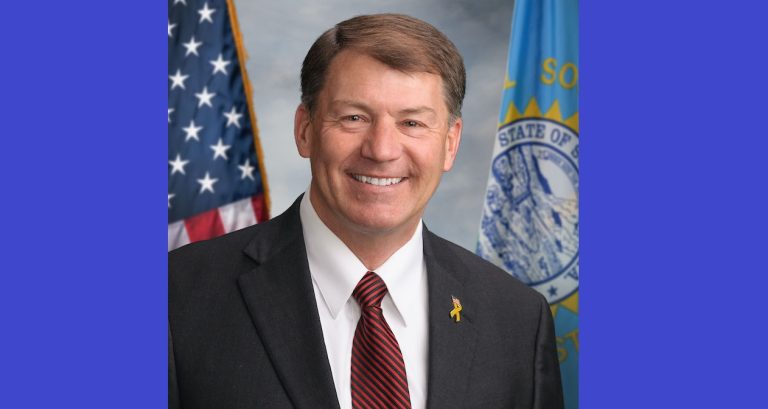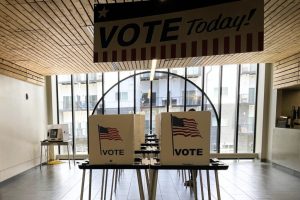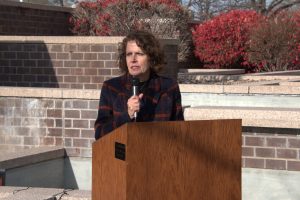Brad ‘Murdoc’ Jurgensen, The Rapid City Post and Dakota Town Hall
On Wednesday, May 14, RaPo sat down for a wide-ranging conversation with U.S. Senator Mike Rounds of South Dakota. We talked about his recent trip to the Vatican, ongoing negotiations over the farm bill, education policy, trade uncertainty, AI, data centers, and his advice for South Dakota leaders. What follows is the full conversation, lightly edited for clarity.
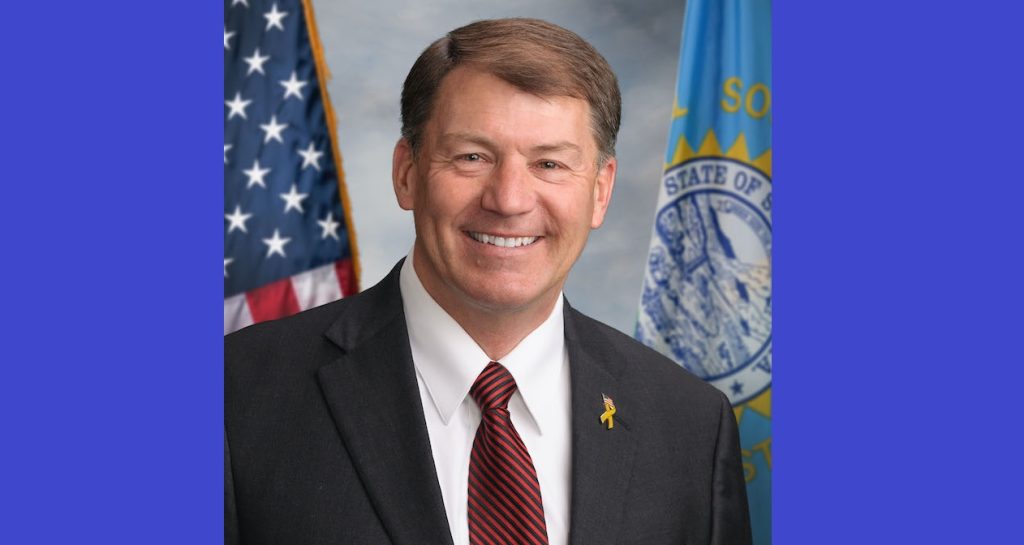
Murdoc:
Good morning, Senator. How are you today?
Senator Rounds:
So far, so good.
Murdoc:
Well, should we get to it?
Senator Rounds:
Fire away.
Murdoc:
Let’s start. You were at the former pope’s funeral. That must have been quite a thing to see, especially being a good Catholic boy from Pierre.
Senator Rounds:
You know, it really was good to be a part of it. We provided, or at least as members of the United States Senate, there were five of us who came over. We were all Catholic and had been invited by leadership. It was good—Republicans and Democrats alike. We left Friday morning, got to Rome Friday night, and got up the next morning for funeral services at 8:00 a.m. They were done by 12:30, we had a light lunch and dinner, and we were back in the air Sunday morning, headed back to D.C. A quick trip, but I’m glad I went.
Murdoc:
(laughs) I’m sure you didn’t place bets like some of us did, but did you expect an American pope?
Senator Rounds:
I wouldn’t have put any money on that at all.
Murdoc:
Same.
Senator Rounds:
I had no idea that was even being considered. But believe me, jaws dropped when it was announced. I think the important message is that while he was born in America, he is a pope for everybody around the world. He speaks multiple languages and will be able to communicate directly with Americans in English. That’s a positive for sharing the international flavor of the Catholic Church, representing people from all walks of life across the world.
Murdoc:
Let’s move on to issues close to South Dakotans. I read the House budget might complicate the farm bill. Any insight?
Senator Rounds:
It will. The House looked at cutting about $290 billion over 10 years, or about $29 billion a year, from the SNAP portion of the farm bill. Although it’s called the farm bill, about 85% of it is actually nutrition for school lunches and SNAP. The House needed to pass something to get to conference so we can work out a middle ground. They’ve also tried to address state and local taxes for some of their big state members. I don’t think we’ll see those types of reductions in the Senate, but we’ll wait and see what our Ag Committee recommends.
Murdoc:
Moving to the Department of Education, you were out early on a bill to defund it. Where are we today?
Senator Rounds:
Secretary McMahon is looking at different options. Our plan was to disassemble the department logically. There are a number of important offices, like special education and impact aid, that we didn’t want to lose, especially in western South Dakota. But they don’t have to stay in the Department of Education.
We wanted to make sure states didn’t lose any federal funding, but we wanted to eliminate the regulatory oversight—things like federal strings attached to block grants, teacher requirements, and DEI guidelines. We proposed moving those offices back to agencies like Treasury and continuing funding at current levels. That would eliminate about $2 billion in bureaucracy, which could go back to states or taxpayers.
If Secretary McMahon decides to keep the department and defund the oversight offices, we’re open to that. Bottom line—we’re not cutting education funding at all. We’re cutting regulatory oversight and keeping critical programs for the deaf, hard of hearing, and visually impaired.
Murdoc:
Do you think this affects the school voucher debate happening in South Dakota?
Senator Rounds:
I don’t think it does. Special ed and impact aid go directly to school districts. I sent my own kids to St. Joe’s School in Pierre for K-6, then they went to public schools. Public education is critical, but if your public school isn’t working, get involved and fix it. We want local control, not federal interference. That’s why we proposed eliminating the department. Parents should be able to choose public or private, but strong public schools are essential—especially when parents are working two jobs and can’t be as directly involved.
Murdoc:
On that topic, our East River friends at The Dakota Scout reported less than 3% turnout for the Sioux Falls school board race.
Senator Rounds:
That’s just crazy. School board elections should be held at the same time as other elections to boost turnout. You want working folks to vote, not just people with a special interest or an axe to grind. Combining elections makes it worth people’s time to go vote.
Murdoc:
Crazy.
Senator Rounds:
(laughs) Yeah. But it may also mean that people were satisfied with the status quo. I just hope it’s not a case of people giving up on education.
Murdoc:
It’s so interesting, the questions I started with about tariffs are almost no longer applicable. The tariff conversation seems to to have changed 9 times in a few weeks. Where are we today?
Senator Rounds:
(laughs) It might have changed in the last hour!
I believe in fair and free trade, but tariffs have a place. Even Reagan imposed tariffs on Japan temporarily. It sends a message: fix the problem or the tariff stays. But tariffs are ultimately paid by American consumers. They’re like a sales tax on foreign goods. The best solution is to compete productively. But if we’re not being treated fairly, tariffs are an option.
President Trump pushed hard with tariffs to get people to the negotiating table. I think he’s starting to reduce them now. I’ll give him the benefit of the doubt. His goal is free and fair trade, but he can’t say that outright while negotiating. I want our ag producers to have access to global markets and I want mandatory country-of-origin labeling so consumers know where their beef comes from.
Murdoc:
Some CEOs, like Jamie Dimon, and even Trump-supporting business leaders, agree with that premise, but not the uncertainty. What do you think?
Senator Rounds:
Short-term, yes. Big box retailers warned the president that if tariffs with China remained, shelves would be empty. I think he pushed it as far as he could, and now he’s adjusted. He doesn’t want to hurt Americans, but he does want to fix unfair trade practices. Most of us in South Dakota would have taken a different approach, but he’s the president, and we’ll work to help him succeed.
Murdoc:
I don’t think it’s all tied to tariffs, but, you know… foreign investments for data centers from Saudi Arabia, like what’s happening this week… Not that it is either-or, but a lot of South Dakota farmers would see Canada as more of an ally and a partner than any country that gives us things like free jets.
Senator Rounds:
(laughs) Canada is our friend. They’re not going to be the 51st state. I’m not sure why the president pushed so hard except to get attention. We do a huge amount of business with Canada, and they with us. They’re frustrated right now, and we’ll see a reduction in trade and tourism until this is resolved. When asked, I told Canadian officials to negotiate privately, not publicly. We’ve got the U.S.-Mexico-Canada trade deal. If things need to be fixed, let’s fix them and move forward.
Murdoc:
What about data centers? Is there feasibility for them in South Dakota?
Senator Rounds:
Oh, absolutely. Look, here’s the deal. AI, artificial intelligence, is not going away. It is here. It’s for real. The challenge for us is that the data centers are either going to be here in the United States or they’re going to be somewhere else around the world. We need to control the data centers for our own national security. We also need to take the opportunity to set the standards around which artificial intelligence is used. If data centers are established elsewhere, and they do the advancements in artificial intelligence, then it’s the standards for privacy, the use of copyrights, patents, and so forth will go to where those data centers are actually located. We can’t let that happen. Here’s the thing that I think most folks would be interested in – What’s it going to do to our power supply? Data centers are going to go where power supply is available.
In the United States today, we use about 1300 gigawatts of power. Now, in South Dakota, we don’t use a whole lot of power, but we do export a lot of wind power. We’ve got the main stem dams along the Missouri River, where we’ve got hydroelectric power. In South Dakota, if they want to put in a larger data center, they could use one half of 1% of a gigawatt, or about 500 megawatts. And that’s a lot of power. So, they’re looking for places where the temperatures are cooler. South Dakota does have some cooler temperatures during a significant part of the year, and data centers need open spaces. If a state does it correctly, it can be an economic boon with some nice tax advantages for the schools in those areas as well as for the local taxpayers.
Murdoc:
I keep telling our tribal neighbors this is their greatest opportunity since casinos.
Senator Rounds:
(laughs) It would actually be bigger. But power availability is the key. We’re going to be short on power nationally by 2030. AI alone could add 50 to 80 gigawatts of demand, and our grid is only expected to grow by 50 gigawatts total. We’ll need more wind, solar, nuclear, and even coal. We’ll need everything to meet energy demands.
Murdoc:
These are all complicated funding projects, just like the state prison debate, or any other big project. Any advice for South Dakota leaders that you’ve shared on some of these complicated funding projects?
Senator Rounds:
Use good common sense. Don’t buy more than we can afford. Always ask: Does it benefit the next generation? Our biggest challenge is keeping young people in South Dakota. If we focus on building quality of life, economic opportunities, and education, we’ll make the right decisions.
Murdoc:
Thanks for making the time today – We’re excited to have you as one of the first major conversations in our new news product, The Rapid City Post.
Senator Rounds:
We need professionals asking good questions and providing solid, verifiable information. There’s too much misinformation out there. Communities need to have trustworthy local media.
Murdoc:
Before we go, my favorite person in DC to debate with is Dez, by a mile.
Senator Rounds:
(laughs) Dez Ward is great – He’s my Chief of Staff. From Milbank, South Dakota. He’s doing very well for us.
Murdoc:
Have a great day, Senator.
Senator Rounds:
Thank you, sir. Bye-bye.
About the Author:
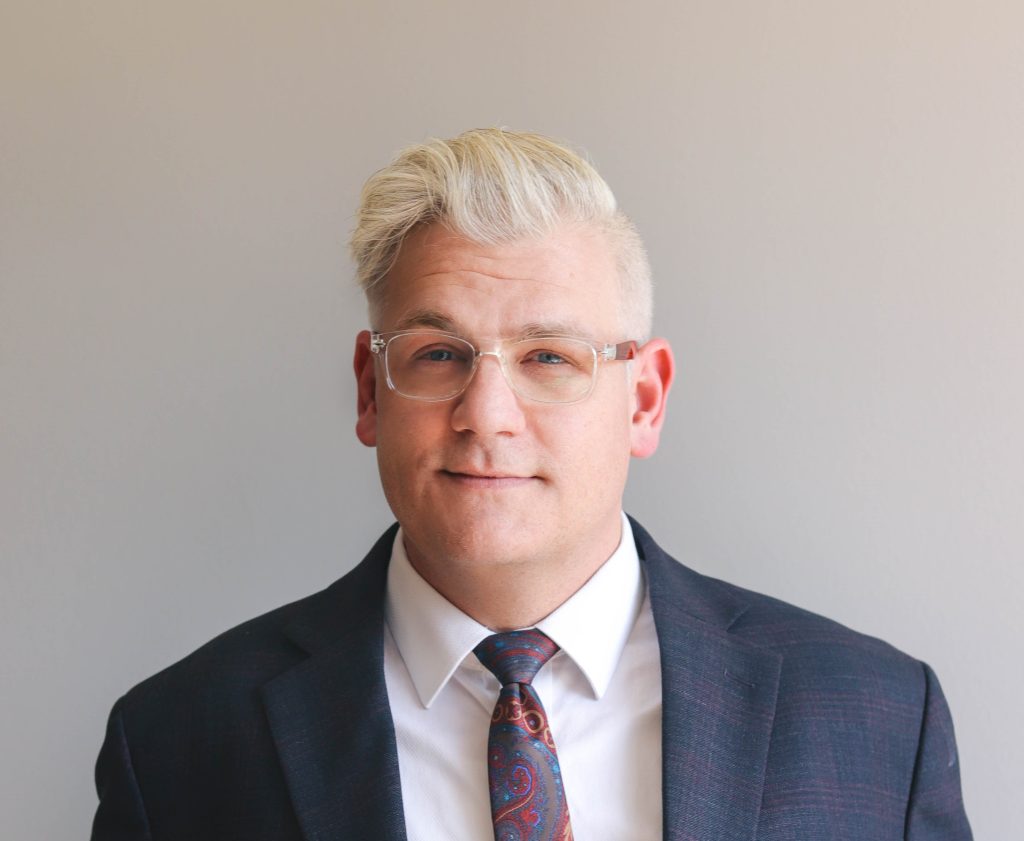
Brad “Murdoc” Jurgensen was born and raised in Alcester, SD, and resides in Rapid City, SD. He is a media personality and podcast host with over two decades of experience, and he has been covering South Dakota politics since 2006. Currently, Murdoc serves as President of The HomeSlice Group, focusing on building and managing brands and producing riveting content. You can also hear him as co-host of Dakota Town Hall, South Dakota’s premier political podcast.


